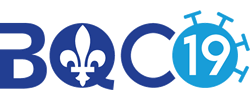Vincent Mooser
McGill/CERCDirector of the BQC19


BQC19 is a biobank with its own management and governance structure. The governance includes a Governing Committee, a Steering Committee, an independent Data and Sample Access Committee, and an international Scientific Advisory Board. It also includes several sub-committees responsible for mandates ranging from scientific priorities to communication and ethical, legal and social issues. The governance of BQC19 is framed in its Management Framework. Terms of References for accessing samples and data collected within the framework of BQC19 are being completed.
Accountability
The BQC19 reports to the funding agencies and to the multicentric ethics committee that has approved the project. It will also have to undergo an external examination by a committee made up of international experts.
1 To be confirmed. A public health representative and an expert in ethics and law.
Ensure the operations of the BQC19.
Independent international experts; names to come.
The main purpose and responsibilities of the ISC include: